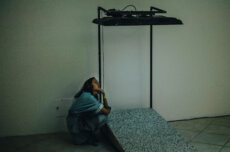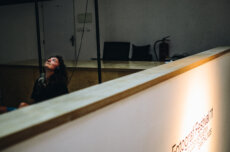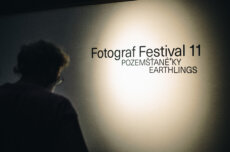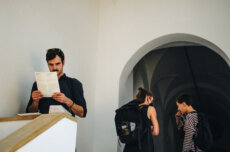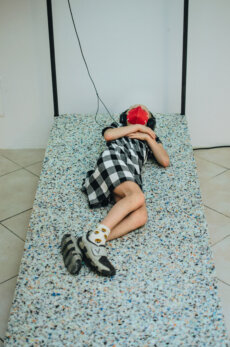I.
We can imagine every organism as a temporary clump of matter that aims to maintain its stable ordering by transforming the energy and matter it accepts from its surroundings. In biology, this process is called metabolism and is usually divided into two parts: anabolism – the process of creating more complex chemical substances through acquired energy (photosynthesis, for instance) – and catabolism – the breakdown of chemicals into simpler components; a process that releases energy (e.g. digestion and cellular respiration).
II.
As of the second half of the twentieth century, the gradual interconnection of motifs from various scientific disciplines led to the rise of a new field now known as ecological economics. One of its foundational ideas is that of economics as a metabolic process – a transforming flow of materials and energy with natural resources at its beginning and waste and products intended for consumption at its end. This model works equally well when applied to a small farm, a shoe factory and the global economy. Complexity increases with scale, of course, and so in the case of the global economy, we speak of a system of metabolic ‘cells’ – production infrastructure and logistical networks – rather than a unified process. The fundamental idea, however, remains the same.
III.
What are the consequences of accepting such a “metabolic perspective”? The idea that a natural economy exists and our human economy is merely an extension or imitation of it has been with us for a long time. It was discussed by figures such as Carl Linné, Charles Darwin and Peter Kropotkin, and served as the foundation for diverse political positions and economic proposals. Today, however, it seems that the “metabolic perspective” is not merely the continuation of this line of thought through different means – instead, it shows us the permeability between the human and natural economies, to the extent that terms such as ‘logistics’ or ‘infrastructure’ can be applied equally well to industrial zones and ecosystems, to the production and transport of goods and to photosynthesis and food chains.
IV.
However, we may perhaps take the “metabolic perspective” even further: What if we were to consider human culture and communication through symbols, words, sounds and images as merely continuations of natural metabolisms? Would we not find around us animals, plants, fungi, bacteria, non-living objects and entire communities of organism that are constantly speaking to us, showing us something or warning us? Could we then see the natural infrastructure and logistics not only in the areas of materials and energy, but also in the way messages about the past, present and future are relayed? Memory and knowledge could then also sediment and erode, crystallize and flow, from one organism to another, from place to place.
Festival is free of charge. Please, reserve your tickets here.
